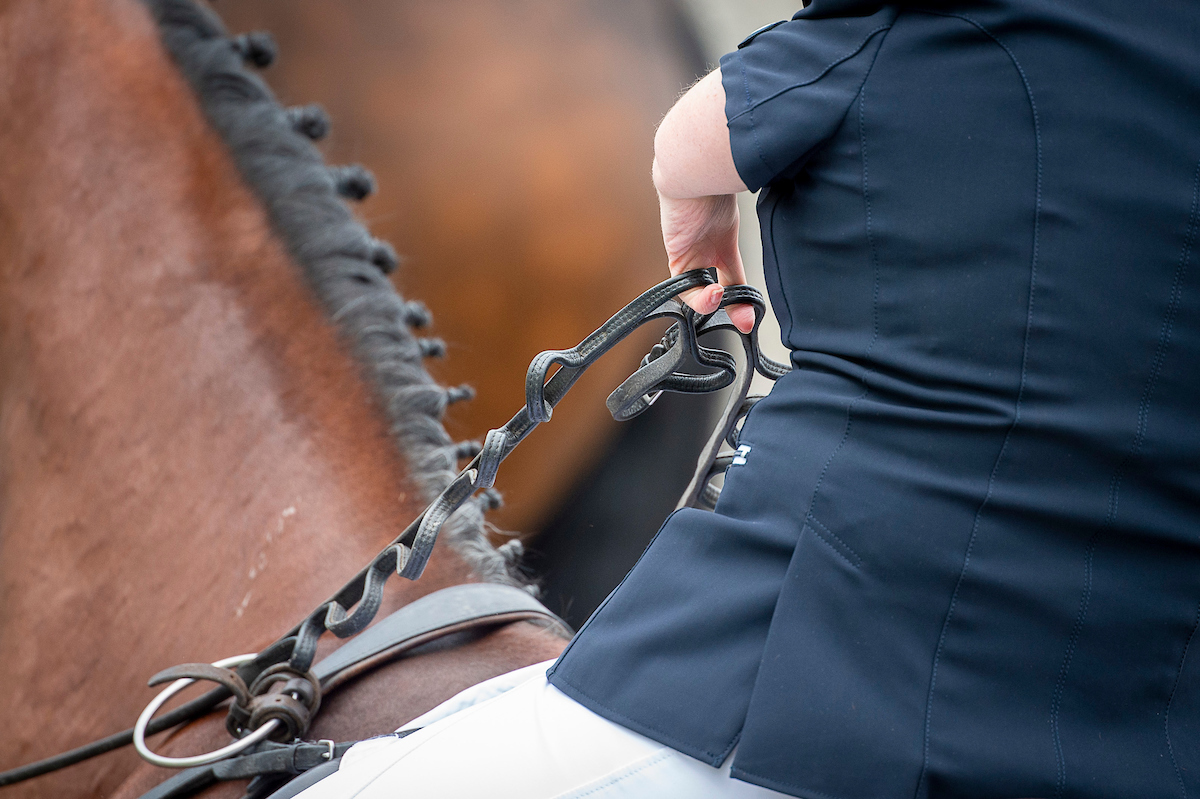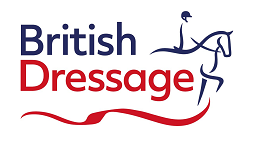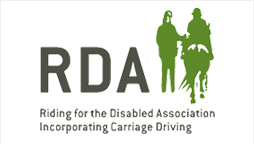Getting classified
**Keep an eye out for a new application process which will be implemented in 2025 **
New classification applications
National Physical impairments classification

Classification process_Physical Impairment
In order to process your application, you'll need to complete the below forms and send them to the British Equestrian Classification Coordinator, Emma Bayliss, via email, emma.bayliss@bef.co.uk.
National Classification Registration Form
National Classification Consent Form
General Data Protection Regulations (GDPR)
In accordance with GDPR, we will not hold a copy of your National PE Classification Registration form and medical information once your application has been fully processed. It is your responsibility to retain a copy of this information.
NATIONAL VISUAL IMPAIRMENTS CLASSIFICATION

Classification process_Visual Impairment
Visually impaired athletes must obtain an eligible classification grade from British Blind Sport (BBS) and have a confirmed medical diagnosis that is the cause of the visual impairment.
Contact British Blind Sport (BBS) to go through their classification process. Once you have received your BBS certificate, check if you have been allocated a classification grade which is eligible for conversion into a para equestrian grade.
If you have a BBS grade that is eligible for conversion, send your BBS classification certificate and medical evidence of the confirmed diagnosis which has caused the vision impairment to the British Equestrian Classification Coordinator, Emma Bayliss (emma.bayliss@bef.co.uk), so it can be converted into a para equestrian grade.
Eligible for classification?
You will have been invited to attend a hub for physical assessment – here's what to expect:
Classification Hub- what to expect
NATIONAL CLASSIFICATION HUBS
As explained above, the application to be Classified for para competitions is a two-stage process:
- Stage 1 – Submission of forms and medical information for the Classification Working Group (CWG) to process
- Stage 2 – If the CWG confirms the applicant has a medical condition(s) which meets the criteria, they will be invited to have an Athlete Evaluation (physical assessment) to be assessed if they meet the minimum impairment criteria at one of the hubs listed below.
The hubs are held in various locations throughout the year and you can select your preferred location on your application. We will do our best to accommodate you, however, there are a limited number of appointments at each Hub.
N.B. You must submit your application a minimum of six weeks in advance of the evaluation date you would like to attend.
| Date | Venue | Address | Application Deadline |
|---|---|---|---|
| Saturday 15 March 2025 | White Rocks Farm | Underriver, Sevenoaks, Kent TN15 0SL | Monday 3 February 2025 |
| Saturday 29 - Sunday 30 March 2025 |
BD Para Winter Championships Arena UK |
Allington Ln, Grantham NG32 2EF | Monday 17 February 2025 |
|
Sunday 6 April 2025 |
BHS Scotland | Suite A3, Stirling Agriculture Centre, Stirling FK9 4RN |
Monday 24 February 2025 |
|
Sunday 11 May 2025 |
Myerscough College |
St Michael's Rd, Preston PR3 0RY | Monday 31 March 2025 |
| Saturday 12 - Sunday 13 July 2025 | Hartpury College, RDA National Championships | Hartpury, Gloucester GL19 3BE | Monday 2 June 2025 |
| Saturday 18 October 2025 | Heel and Toe Children's Charity | 40 Front St, Chester-le-Street DH2 1DE | Friday 5 September 2025 |
| Saturday 8 November 2025 | RDA National Training Centre | Lowlands Equestrian Centre, Old Warwick Rd, Shrewley CV35 7AX | Monday 26 September 2025 |
Athletes eligible to attend a classification hub will contribute:
- £75 new classification
- £50 review classification.
Review classification
If you are due for a review, you must complete and submit the National Classification Review Form and Consent Form to the British Equestrian Classification Coordinator, emma.bayliss@bef.co.uk.
National Classification Review Form
National Classification Consent Form
General Data Protection Regulations (GDPR)
In accordance with GDPR, we will not hold a copy of your National PE Classification Review Form and medical information once your application has been fully processed. It is your responsibility to retain a copy of this information.
International classification
An FEI International Classification will allow you to participate in international para equestrian competitions. It's important that you familiarise yourself with the FEI Para Equestrian Classification Rules. All the relevant documents can be found on the FEI website for Para Dressage and Para Driving.
As the National Federation of Great Britain, British Equestrian acts as a liaison between the FEI and yourself. To apply for FEI International classification, you need to submit the following documents from the FEI website, using the relevant link above, to emma.bayliss@bef.co.uk.
- FEI Classification Request form
- Consent form
- FEI Diagnostic Form
- Recent medical Evidence
The applications need to be sent in six to eight weeks prior to the show you would like to be classified at. Please be aware that the FEI doesn't allow electronic signatures, so please ensure you sign the forms manually.
International Classification - Navitgate website & info - Feb 2024.pdf
Intro to FEI International Classification - Crib sheet Feb 2024.pdf
Compensating aids

Compensating Aids are special pieces of equipment to aid an athlete in para competitions, but don’t give them an advantage over other athletes in the same grade – for example, an athlete who struggles to grip the reins could use looped reins as a compensating aid. Athletes are encouraged to use as few aids as possible.
A list has been compiled to maintain consistency for para dressage and para driving:
Compensating Aids 2024 Para Dressage
Compensating Aids 2024 Para Driving
There are three categories of Compensating Aids:
- Standard Compensating Aids: These aids, other than approved saddlery or equipment as outlined in the British Dressage, RDA or British Carriagedriving rules, may be used by all graded para athletes in para competitions. They do not need to be listed on the athlete’s classification card.
- Profile-Specific Compensating Aids: Other than approved saddlery, these aids may be used by athletes with the corresponding Profiles and Grades as outlined in the Compensating Aids document. These must be listed on the athlete’s classification card.
- Non-Standard Compensating Aids: These aids are required by an individual athlete and are not listed or described specifically in the rules. These aids may include modifications to a Standard or Profile-Specific Compensating Aid, or a piece of non-standard equipment that’s been custom-made for an athlete.
Please note: all the equipment and aids must comply with Para Dressage and Para Driving rules and regulations.
APPLYING FOR COMPENSATING AIDS
To apply for compensating aids, you need to complete the National Request Form (below) for Compensating Aids and submit with the supporting documentation to the British Equestrian Classification Coordinator, Emma Bayliss.
National Request Form for Compensating Aids
Applying for a 'commander'
A commander calls out the movements in sequence to the athlete as they compete.
Those with a permanent memory impairment which impacts their ability to remember the sequence of movements required for the duration of a dressage test can apply and must produce evidence from a psychologist. You need to submit a Wechsler Memory Scale (WMS-IV) test or similar with a brief report to substantiate your request for a 'Commander'. Use the template letter below as a guidance when requesting the tests from a psychologist.
Commander: Psychologist template letter
FAQs
IF I AM ELIGIBLE TO HAVE AN ATHLETE EVALUATION (PHYSICAL ASSESSMENT), DO I NEED TO BRING MY HORSE WITH ME?
No, you don't need to bring your horse with you. The Athlete Evaluation is carried out by two Classifiers in a clinical environment, and you will be asked to carry out a variety of movements and exercises.
WHAT DO I NEED TO KNOW ABOUT THE ATHLETE EVALUATION?
The Athlete Evaluation (physical assessment) is held in a clinical environment with two National PE Classifiers. It can take up to around an hour and we recommend you wear comfortable, loose-fitting clothing.
Further details of the Athlete Evaluation can be found in the National Para Equestrian Classification Rules below:
- Chapter 3: Athlete Evaluation (p12–16)
- Chapter 4: Athlete Evaluation and the Classification Panel (p17–21)
- Chapter 5: Grade Not Eligible (p22–23)
British equestrian National Classification Rules
ARE INTELLECTUAL DISABILITIES ELIGIBLE?
Intellectual disabilities are not currently eligible for para equestrian classification. However, British Dressage and Riding for the Disabled Association have collaborated and now run an Intellectual Disability Championships – please contact British Dressage for more information. There are also some other options on the Physical Impairment and Eligibility page which are available to you.
Useful documents
Para classification privacy notice


